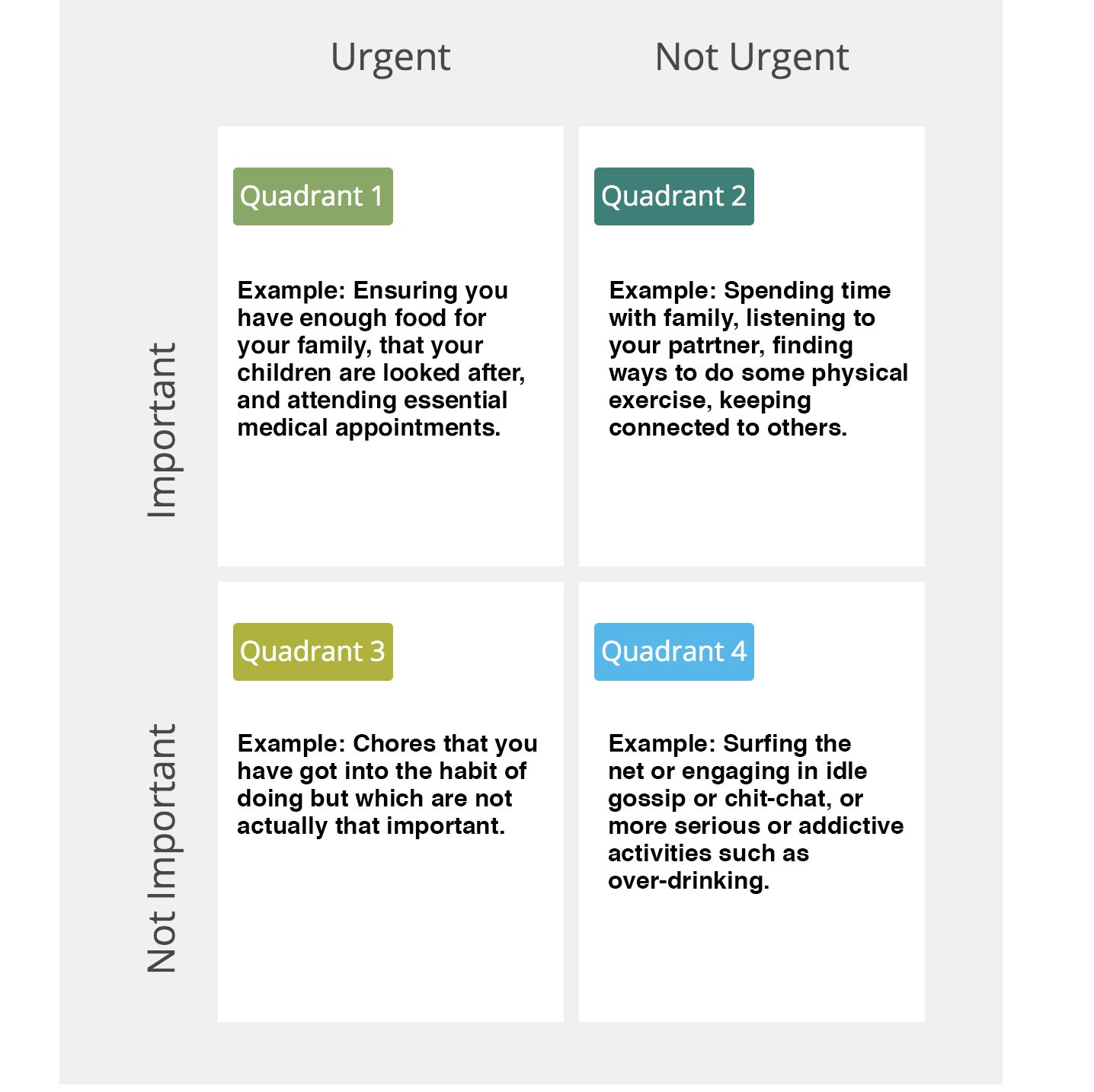
You cannot always control how stress affects your life or what will be a stressor; however, you can control how you deal with said stressors. Self-care plays an essential role in responding to uncertain or stressful times in our lives. With the advent of Stress Awareness Month in April, it is wise to be cognizant of your life stressors and take a little extra time to discover self-care techniques that work for you. So, why not use this month as an opportunity to prioritise yourself and discover healthy self-care methods that you can implement into your daily life.
Before we continue exploring the importance of self-care, take a moment to check in with your mind and body by following our body scan video and guide below:
What is Self-Care and How does it Benefit Us?
Self-care is anything you do to take care of yourself so you can stay physically, mentally, and emotionally well. Research suggests self-care promotes positive health outcomes, such as fostering resilience, living longer, improved cognitive function, and becoming better equipped to manage stress.
It’s often presented to us as a luxury or a treat, when in fact it is a crucial part of feeling and staying well. Even five minutes of focusing on our breath or stretching can help us. These small moments of self-care build up to produce a more resilient version of ourselves over time and they help to strengthen our coping mechanisms.
Self-compassion and how we speak to ourselves are important self-care techniques. You may tell yourself that it’s selfish to take time for yourself if you have dependents or are on the frontline, but you cannot pour from an empty cup. Simply put: you can’t help others if you don’t have the energy and strength to first take care of yourself.
Self-Care Techniques for Improved Mental Health
Everyone has different needs and will find different self-care activities that work for them. Spend some time thinking about the things you need to do to look after yourself, as well as what you can realistically do in your current circumstances. Remember, self-care is not a once-off thing that happens when we’re feeling overwhelmed, it needs to become a part of your everyday life. Let’s take a closer look at these different self-care techniques below.
1. Exercise and Stay Active
The core pillars of a healthy lifestyle are exercise, diet, and sleep.
Be mindful of unhelpful coping strategies that can find their way into your routine during times of stress, such as overeating or consuming more alcohol than normal. While these can provide some short-term comfort, they can have a negative impact on your physical and mental health and potentially lead to bigger issues down the line.

Exercise is a great way to take your mind off things and lower stress levels. Creating an exercise routine adds a positive element to your day – the endorphins generated by exercise make you feel good. It can also have a knock-on effect on other areas of your health, e.g. it improves the quality of your sleep and makes it easier to eat healthily. If you’re finding it hard to motivate yourself to get moving why not meet up with a friend and work out together.
|
Tip: Action comes before motivation. A common excuse for not exercising or developing more helpful habits is “I don’t feel like it”. If you wait until you feel like making a change, however, you might never do it. Trying something new or motivating yourself to exercise often only comes after you actually start doing it. Try to catch this type of thinking early and just start the activity before you talk yourself out of it. |
2. Rediscover the Simple Pleasures in your Life
A constructive way to restore yourself when dealing with a challenging situation is to spend time doing things you really enjoy. These could be hobbies, exercise, your work, or other personal or creative pursuits. Remember, it’s ok to not do these things perfectly!
Being mindful of your screen time on phones, laptops, and TVs is also important during stressful times. Mindlessly scrolling on social media and news apps can cause stress and anxiety. It’s important to avoid comparing your life to someone else’s highlight reel, especially during uncertain and stressful times.
Find simple activities you enjoy that fit your routine and values. Sometimes when you become engrossed in an activity or task that you are passionate about, you can lose all sense of time. This is called flow. Flow happens when you become totally absorbed in what you are doing and experience intense concentration. It can be very soothing when dealing with stress, as it gives you a time-out from the strong or overwhelming emotions you might be feeling.
|
Tip: Identify some ‘you’ time. Maybe the mornings work best for you, or perhaps you’re more of a night owl. Whichever you are, mark out the time in the day when you are most likely to have the energy and the time to do something you enjoy and set a reminder or put it in a calendar so you make sure to include it as part of your daily routine. |
3. Practice Self-Compassion & Positive Self-Talk
Stress, disappointment, and setbacks are part of life and cannot be avoided entirely. What you do have control over, however, is how you treat yourself when these negative experiences occur. It’s easy to treat yourself poorly when things aren’t going well, but it’s important to catch these thoughts or behaviors and treat yourself with self-compassion.
Self-compassion is about how you talk to yourself when things aren’t going well. Being actively compassionate towards yourself involves being aware of your needs and knowing when things are getting too much. It is not about excusing yourself from mistakes. We tend to criticize ourselves and often treat ourselves much more harshly than we would another person when things go wrong and this negative self-talk is extremely common. Being able to recognise this negative voice gives you the freedom to change it. When something goes wrong, rather than assigning personal blame, “What is the matter with me?”, “Why do I always get things wrong?”, reframe it as a mishap.
Understanding your negative self-talk is the first step towards distancing yourself from constant self-judgment and cultivating compassionate self-talk. Compassionate self-talk is anything supportive, kind, helpful, caring, encouraging, or soothing you say to yourself. Talk to yourself as if you were talking to someone you love dearly.
|
Tip: The goal of compassionate self-talk is to create a less judgmental inner conversation, one that still describes the same reality, but in a much more compassionate way. The next time you catch yourself saying something critical, talk to yourself as you would a small child in a kind and understanding way. |
4. Make Time for Self-Care and Stress Management Activities
During stressful times, you might feel like you simply don’t have time to take a break, let alone practice self-care. On any given day we carry out a number of different roles in the important areas of our lives. These range from your role in work, being a parent or spouse, to the voluntary work you do in your community. Managing to juggle all of these roles and responsibilities, can often be a delicate balancing act.
It is important to recognise that it's not always possible to carry out these in the way that you normally would. Try not to be too hard on yourself. Maybe it’s OK for your child to watch a bit more TV so you can get a piece of work done. Maybe it’s OK for you to say no to a request from work, that would limit your time with family.
Stephen Covey’s ‘Time Management Matrix’ is a way of categorizing our everyday tasks and activities into 4 different quadrants. This might be a useful tool to help you manage tasks.
- Quadrant 1 activities are those that are important and have to be done urgently
- Quadrant 2 activities are important activities that aren’t pressing or urgent
- Quadrant 3 activities are those that appear urgent but are not that important to you, but which are not actually that important.
- Quadrant 4 activities are those time-wasting activities that we all engage in that are neither important nor urgent.

If you spend too much time in Quadrant 1 you will be caught up in firefighting and dealing with constant pressure and emergencies. This is a highly stressful place to be in and, over time, can lead to burnout and poor performance. If you’re spending too much time in Quadrant 4 you are caught up in trivial, unimportant, and frequently damaging or addictive activities. This quadrant is best avoided, or at least kept to a minimum.
|
Tip: The key to successful time management is to make sure that you prioritize Quadrant 2 activities and tasks. |
Emphasising Stress Management and Self-Care for Overall Balance
Setting achievable goals and making small changes can help you find a sense of balance. Identify some tasks and activities that you want to pursue using the Time Management Matrix, and use it to set a couple of goals you want to achieve each day, or by the end of the week.
Looking after yourself is not a luxury, it is an essential part of maintaining your energy levels and protecting yourself against stress. Remember not to pressure yourself to do things perfectly and to speak to yourself with self-compassion.
Self-Care Links & Resources








